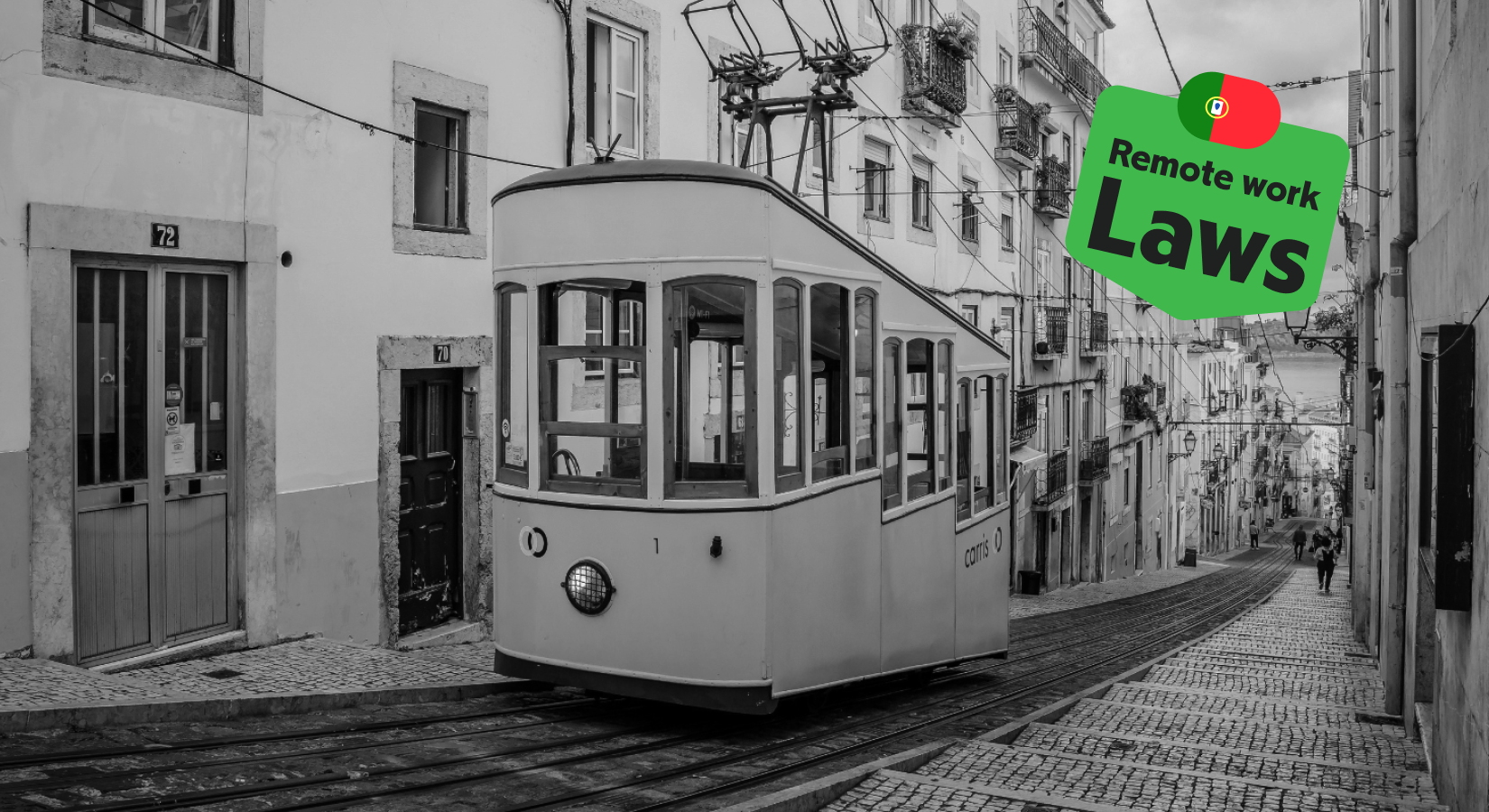At the beginning of 2023, there were an estimated 35 million professionals worldwide who describe themselves as digital nomads — a figure that some experts predict will rise to a whopping one billion by 2035.
Many countries have already understood the potential of digital nomads and the positive impact they can have on their economies and introduced digital nomad visas and other schemes to attract remote talent.
However, for digital nomads, there’s more to consider than just a visa. Lifestyle, cost of living, internet connectivity, cuisine, coworking spaces, culture, and even climate all play a role in a nomad’s decision about where to hang their hat for a while.
If you’re a digital nomad considering your next move or aspire to be one soon, check out this infographic that rounds up the top destinations for digital nomads in 2023.
The Best Countries in the World for Digital Nomads
Portugal
With its low cost of living, pleasant climate, and 352 beautiful beaches to explore, it’s no wonder Portugal was voted the best destination for digital nomads in 2023.
Boosted by an average internet speed of 205.11 Mbps, Portuguese cities like Lisbon, Porto, and Lagos offer a blend of history and modernity. Portugal’s temporary-stay visa for digital nomads is valid for one year and can be renewed for up to five years. However, a minimum monthly income of €2,800 is essential.
Fun fact: Portugal is home to the oldest bookstore in the world, Bertrand, located in Lisbon. Additionally, it is a leading global cork producer.
Croatia
Croatia’s allure lies not just in its stunning coastline but also in its digital-friendly approach. The country has a cost of living index of 54.6 and an average internet speed of 109.27 Mbps. Split, Pula, and Zagreb are some of the hotspots for digital professionals.
Croatia’s digital nomad visa is valid for one year, with a minimum monthly income requirement of €2,300.
Did you know? Croatia boasts of having over 1,000 islands, and it’s the homeland of the necktie.
Spain
Spain’s cost of living index stands at 73.0, with cities like Barcelona, Madrid, and Valencia becoming increasingly popular for remote workers. The country’s fast internet — with speeds averaging 248.25 Mbps — ensures smooth virtual meetings.
The Spanish digital nomad visa is valid for one year and can be renewed for up to five years, with a monthly income requirement of €2,160.
Fun fact: Spain is the second-largest producer of wine in the world and hosts La Tomatina, a unique tomato-throwing festival.
Greece
Greece, with its rich history, has a cost of living index of 66.5. Though the average internet speed is a sluggish 56.43 Mbps, the serene landscapes of Athens, Thessaloniki, and islands like Crete and Corfu compensate.
The digital nomad visa in Greece is valid for a year but can be extended for one more. A higher monthly income of €3,500 is required.
Trivia: Greece has over 2,000 islands, and it's the birthplace of the Olympic Games.
Germany
Germany has a relatively higher cost of living index at 82.3 — but is still more affordable than other Western European countries — and offers robust infrastructure.
Cities like Berlin, Munich, and Frankfurt are not just business hubs but also digital nomad-friendly, with internet speed that averages at 153.77 Mbps. Nomads can opt for a 3-month freelancer visa, which can be extended up to three years with a residence permit. The yearly income requirement stands at €9,000.
Interesting fact: Germany is known for its autobahn highways — which have no speed limit — and is the birthplace of the printing press.
Estonia
A pioneer in the digital realm, Estonia is the world’s most digitized country, and the cost of living index is 96.58. With an average internet speed of 103.48 Mbps, cities like Tallinn, Tartu, and Parnu welcome nomads.
The Estonian digital nomad visa is valid for a year, but applicants need to show a consistent monthly income of €3,504 for the last six months.
Did you know? Estonia was the first country to offer e-residency, and it has more than 2,000 islands.
Thailand
Thailand’s allure is undeniable with a low cost of living index of just 34.7. This jewel of Southeast Asia boasts cities like Chiang Mai and Bangkok and islands like Ko Phangan and Ko Phi Phi, with an impressive internet speed of 260.54 Mbps.
Thailand’s Smart Visa lasts two years and can be extended for another four, with a flexible monthly income range of $1,475–$5,900.
Trivia: Thailand is home to the world’s smallest mammal, the bumblebee bat, and is the world’s largest rice exporter.
Indonesia
With its stunning beaches, laid-back lifestyle, and highly Instagrammable cafés, Bali in Indonesia is practically synonymous with digital nomadism. With a cost of living index of 33.1 and an internet speed of 43.35 Mbps, the country offers a B211a tourist visa valid for 60 days, extendable twice for the same duration.
Fun fact: Indonesia comprises over 17,000 islands and is home to the world’s largest flower, the Rafflesia.
Costa Rica
Costa Rica is another hotspot for the digital nomad community thanks to its incredible jungles, spectacular biodiversity, and stunning beaches on both the Pacific and the Caribbean. The budget-friendly country has a cost of living index of 59.4 and average internet speed is 91.08 Mbps.
Digital nomads can apply for a one-year digital nomad visa with the possibility to extend for another year, and the minimum monthly income requirement is $3,000 per month. Digital nomad hotspots include the capital city San Jose and beach destinations like Playa Hermosa and Santa Teresa.
Did you know? Costa Rica has over 500,000 species of wildlife and is one of the happiest countries in the world.
Mexico
Mexico’s charm, history, and natural beauty all contribute to its status as one of the world’s most popular digital nomad destinations — along with a cost of living index of 58.5 and average internet speeds of 77.07 Mbps.
Digital nomads in the country can request a temporary resident visa with the possibility to extend for another three years if they meet the monthly income requirement of $1,620 per month. Some of the most popular spots with nomads include Mexico City, Tulum, and Puerto Escondido.
Fun fact: Mexico is home to the world’s largest pyramid and is the birthplace of chocolate.
Tips for a Happy, Healthy Digital Nomad Lifestyle
Life as a digital nomad can be fulfilling and rewarding, but it can also have its downsides. Use the following tips to stay happy and healthy while living on the road — and avoid any social and cultural faux pas that might offend your hosts.
Establish a Routine
While the allure of being a digital nomad often lies in the flexibility it offers, it’s crucial to establish a routine. Set specific work hours, even if they shift depending on your location. A healthy work-life balance will help you stay productive while ensuring you have time to explore and enjoy your surroundings.
Be prepared
As a digital nomad, it’s essential to prepare for any problems you might run into on the road. Travel insurance is a must-have to keep you and your belongings safe, and many countries also require healthcare coverage to grant your digital nomad visa.
Invest in Reliable Tools and Technology
Your laptop and internet connection are your lifelines. Ensure your devices are in good condition, invest in backup tools (like portable hard drives or cloud storage), and always have a reliable VPN for secure connections. If possible, carry a portable WiFi router for areas with spotty internet.
Prioritize Health and Well-being
Different time zones, local cuisines, and constantly changing environments can take a toll on your health — especially while working. Make sure to maintain a balanced diet, incorporate regular exercise (even if it’s just walking or stretching), and get enough sleep. Remember, your health is integral to your ability to work and travel.
Network and Socialize
The digital nomad lifestyle can sometimes get lonely. Take time to engage with local communities, attend meet-ups or coworking events, and connect with other nomads. Building a network can provide both professional opportunities and a sense of belonging.
Stay Informed and Respect Local Cultures
Always research local customs, laws, and any potential safety concerns in your new location. Being respectful and understanding of local traditions will enrich your experience and help you integrate more smoothly. Additionally, stay up to date on visa regulations and tax implications for working in different countries.
.png)




















